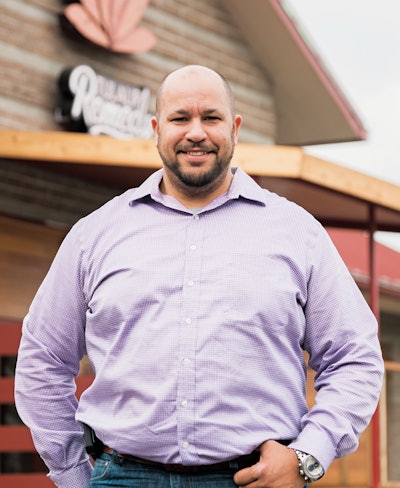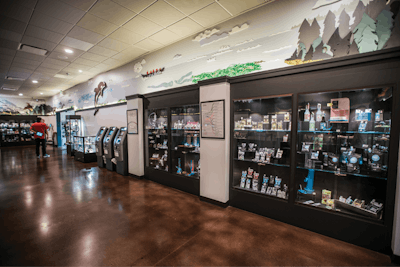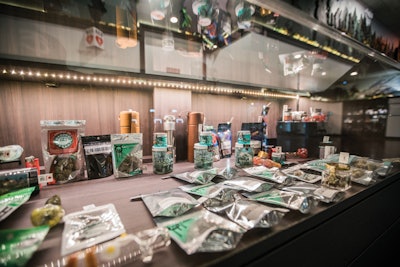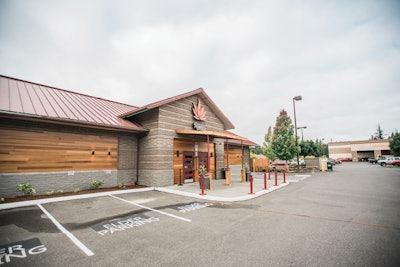

Native Americans have had sovereignty over their lands since the founding of the United States. It’s even implied in section eight of the Constitution’s first article: “The Congress shall have Power … to regulate commerce with Foreign nations, and among the several States, and with the Indian Tribes.”
With that sovereignty, the Tulalip tribe in Washington’s Snohomish County became the most recent native band to join the cannabis industry, launching Remedy Tulalip, an adult-use dispensary located just outside Marysville. The store’s assistant general manager, Jonathan Teeters, shared insights into the intricacies of tribal cannabis with Cannabis Dispensary.
Brian MacIver: Remedy Tulalip opened Aug. 9. How has the launch met and missed expectations?
Jonathan Teeters: The types of customers we’re getting are as expected. We get a lot of traffic from Canada and a lot of visitors to the outlet malls and the casino in this area.
The level of performance of our team members is far exceeding expectations. We had to move the opening date a few times, and as a result, that gave us more time to train our team members for the type of interactions they’re going to be having and, more importantly, understanding how to help a customer find what they need. More and more, the cannabis retail journey is the same retail journey anybody else expects to take.

MacIver: How can you operate the dispensary without a I-502 license?
Teeters: The Tulalip tribe has a compact with the state of Washington directly signed by the governor, which is a government-to-government document. It [outlines] how we agree to enter the cannabis business, how we will coordinate or collaborate when needed with the state of Washington, and basically just writes out an understanding of what we intend to do and the rights that, as a governmental entity ourselves, we’re allowed to make the most of. It’s sovereign, and it is governed by the Tulalip tribe 100-percent.
“If you’re trying to do business in Indian country, it’s really good to understand that there’s more than just making money at stake.” Jonathan Teeters, Assistant General Manager, Remedy Tulalip
MacIver: What is the Tulalip Tribal Cannabis Agency and how does it operate?
Teeters: The TTCA, the Tulalip Tribal Cannabis Agency, is a governmental agency set up to regulate the operations of any cannabis entity that the Tulalip tribe develops as a business.
Forward-thinking tribes have set up Economic Development Corporations, and they allow those corporations to build businesses. We also have a goal of making a lot of money and helping the [Tulalip] people by creating jobs. Remedy Tulalip is the very first cannabis venture under the economic development arm of Tulalip tribes, which is called the Tulalip Economic Development Corporations, or TEDCO. TEDCO is going to go do a bunch of other stuff in cannabis, and the TTCA is going to be there to come up with the rules and regulations and basically do all the interpretation as [it relates] to best practices.

MacIver: How are you able to work with I-502 licensees to get product?
Teeters: Suppliers go through a licensing process with TTCA, and when they’re approved, that allows them to provide samples and do all the things that would normally happen, but then also allows us to immediately … make purchases. So basically, as long as they’re compliant in the I-502 world, they’re good to go. The only hurdle is making sure that they can go through our process and they get TTCA approval on licensing. We all use the same track-and-trace system.
We reached out to a lot of unique brands. The tribe, part of their mission is to support small and craft brands, so we are using our storage space to help some of the little guys get started. And we, for lack of a better way to say it, have treated it like fair-trade cannabis. There’s an approach to buying and working with people that represents that. Also we have a bunch of native brands. There are some native-managed and -owned, and Native American-affiliated brands—one of which is a top performer in the state, and others are working on getting their foothold. And then we also have a place for Clean Green-certified and KIND-certified product.

MacIver: If you were chatting with a businessperson interested in working with a tribal group, what is something you would tell them to keep in mind?
Teeters: I think that if you’re trying to do business in Indian country, it’s really good to understand that there’s more than just making money at stake. There’s the issue of sovereignty, and that means a lot, and it means that investors have to really approach tribes as full partners.

























